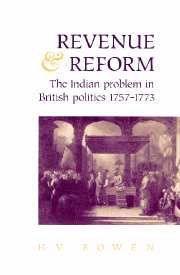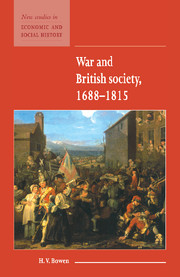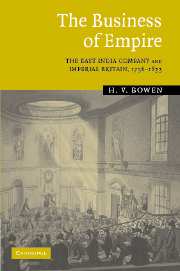Revenue and Reform
Revenue and Reform offers a reappraisal of British imperial politics in the third quarter of the eighteenth century. It is traditional to regard the 1760s as a time when British politicians were preoccupied with the crises which eventually led to the outbreak of the American War of Independence in 1775. Here, for the first time, a different imperial problem - the Indian problem - is examined in detail. Politicians struggled to come to terms with the East India Company's unexpected acquisition of territory and great wealth in Bengal, and they endeavoured to formulate policy related to many new and unfamiliar issues. New light is shed on debate about revenue collection, territorial rights, diplomacy, justice and administrative reform in order to illustrate the central theme of the book: the gradual and reluctant assumption of responsibility by ministers for the Indian empire. Firm guidelines for the development of the Anglo-Indian imperial connection were eventually laid down by Lord North's Regulating Act of 1773, and the background to, and principles underpinning, this important legislative landmark are fully explored in the concluding chapters.
- Reveals how the British were first 'forced' into an imperial role through the movement of British firms into South Asian countries
- Examines how politicians considered Britain's role should develop in the colonies and in what ways British rule should be implemented
Reviews & endorsements
"This fine study of the Indian problem in Hanoverian politics represents something of a breakthrough....[Bowen] is able to synthesize many of the issues raised in the periodical pieces and move the debate forward. The result is very rewarding indeed and this whole approach to imperial problems is to be encouraged, for the very simple reason that it augments the traditional concerns of Empire scholarship so well." Philip Lawson, Albion
"In adopting a global perspective to Britain's late eighteenth century 'imperial problem', the author provides some interesting comparisons of the roles that India and North America played in British politics....Revenue and Reform deals with one of the most important aspects of an imperial policy that was of profound consequence not only to India, but also to eighteenth century Britain and the soon-to-be United States." Journal of Asian History
"...a milestone in imperial history. This new book provides scholars and students of imperial history with an innovative synthesis of British politics and British activity in India in the period from Plassey to the passage of the Regulating Act. Bowen's lively style and excellent presentation have made a complicated story easier to understand as the author skillfully guides us through the maze of India House and the House of Commons." Linda Kerr, Canadian Journal of History
"The research is thorough, the material is presented clearly, and the analysis is persuasive....Those fascinated by the rise and development of the British Raj will find this to be a valuable study." Lynn Zastoupil, Journal of Asian Studies
"Bowen has written a mature and well-crafted book which does much to explain British responses to the challenges of trade and empire in the eighteenth century." John Derry, The International History Review
Product details
April 2002Paperback
9780521890816
220 pages
230 × 153 × 18 mm
0.45kg
Available
Table of Contents
- List of tables
- Preface
- List of abbreviations
- Introduction
- 1. Traders into sovereigns: the East India Company, 1757–1765
- 2. Perceptions of empire
- 3. The policy-makers: Parliament and the East India Company
- 4. Crown and Company (I): the Diwani and the inquiry of 1767
- 5. Crown and Company (II): foreign relations, 1766–1769
- 6. Attempts at reform (I): civil, military, and judicial affairs, 1767–1772
- 7. Attempts at reform (II): trade and revenue, 1767–1772
- 8. The East India Company crisis of 1772
- 9. Response to crisis (I): high politics and the committees of inquiry, 1772–1773
- 10. Response to crisis (II): trade, finance, and reform
- 11. The final act? the passage of Lord North's East India legislation, 1773
- Conclusion
- Select bibliography
- Index.







